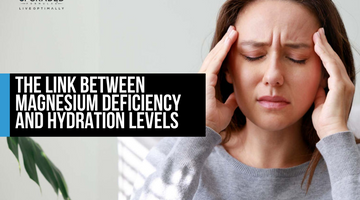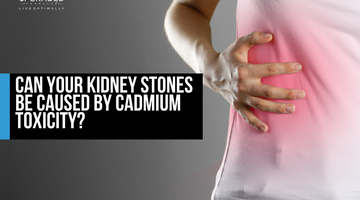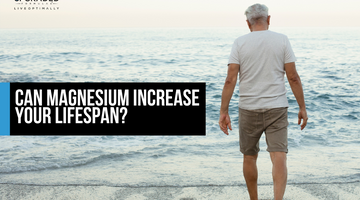blood pressure
- All
- abdominal pain
- absorption
- acetyl
- achy joints
- acid reflux
- Acid-base balance
- acne
- activated charcoal
- acute toxicity
- adaptogens
- adhd
- adolescent
- adrenal
- adrenal adrenal glands
- adrenal fatigue
- adrenal fatigue stress
- adrenal glands
- adrenal health
- adrenal ratio
- adrenals
- aging
- agitation
- alcohol
- aldosterone
- allergies
- allergy
- alopecia
- aluminum
- alzheimer's
- amino acids
- andropause
- anemia
- anger
- anorexia nervosa
- anti bacterial
- anti fungal
- anti viral
- antiaging
- antifungal
- antimicrobial
- antimony
- antioxidant
- Antioxidant Protection
- antiperspirant
- antiviral
- Anxiety
- anxious
- appetite
- are there side effects to magnesium
- aresenic
- Arginine
- arsenic
- arsenic toxicity
- arterial calcification
- arterial stiffness
- arthritis
- ascorbic acid
- asthma
- Atheroscelrosis
- athletes
- autism
- autoimmunity
- b vitamins
- b1
- b12
- b6
- bacteria
- bacterial infection
- bad habits
- barium
- barium toxicity
- bariyum
- barton scott
- beard
- belly fat
- benefits of magnesium
- benefits of magnesium supplements
- best mineral supplements
- Best self
- best supplements
- bi polar
- bi polar disorder
- bile
- bile production
- Biohacking
- biosynthesis
- biotin
- bipolar disorder
- bismuth
- bitters
- bleeding gums
- blindness
- bloating
- blood cells
- blood circulation
- blood flow
- blood glucose
- blood pressure
- blood sugar
- blood sugar dysregulation
- blood sugar imbalance
- blood sugar insulin
- blue light
- body fat
- body oil
- bone broth
- bone density
- bone health
- bone mineralization
- bones
- Books
- boric acid
- boron
- bowl pattern
- brain fog
- brain health
- breast pain
- breathwork
- bromide
- bromine
- burnout
- ca:k ratio
- ca:mg
- cadm
- cadmium
- cadmium toxicity
- caffeine
- calcification
- calcium
- calcium deficiency
- calcium fluoride
- calcium shell
- calm
- calming
- calories
- camdium
- Can magnesium help with anxiety
- Can magnesium help with panic attacks
- Can magnesium make you tired the next day
- cancer
- candida
- carb metabolism
- carbohydrates
- carbs
- cardiovascular disease
- cardiovascular health
- cartilage
- cataracts
- cell growth
- cell permeability
- cellular hypothyroidism
- cellulite
- cerebral palsy
- ceruloplasmin
- charcoal
- chelation therapy
- Chelator
- chemical toxicity
- chest pain
- children
- chloride
- chlorinated pools
- chlorine
- cholesterol
- choline
- chromium
- chromium deficiency
- chromium toxicity
- chronic fatigue
- chronic inflammation
- chronic pain
- chronic stress
- chronic toxicity
- cigarettes
- circulation
- CKD
- clinical trial
- cobalt
- cobalt toxicity
- coffee enema
- coffee enemas
- cognition
- cognitive function
- cold
- collagen
- collagen production
- Collodial Silver
- concentration
- conjunctivitis
- constipation
- copper
- copper deficiency
- copper dysregulation
- copper toxicity
- core minerals
- coronary heart disease
- coronavirus
- cortisol
- cough
- covid
- covid 19
- cramps
- cramps constipation
- cravings
- cutting hair
- cyanocobalamin
- cystic fibrosis
- cysts
- dairy
- dehydration
- dementia
- dental enamel
- Depression
- dermatitis
- detox
- detoxification
- detoxing
- diabetes
- diabetes blood sugar dysregylation
- diarrhea
- diet
- digestion
- digestive enzymes
- digestive health
- digestive issues
- disease prevention
- dizziness
- DNA
- dna synthesis
- does magnesium help with anxiety
- dopamine
- drugs
- dry brushing
- dry eyes
- dry hair
- dry mouth
- dry skin
- dysmenorrhea
- Dyspareunia
- eating better
- Eczema
- EDS
- Ehlers-Danlos Syndrome
- electro magnetic fields
- electrolytes
- electrolytes blood pressure
- emf
- emfs
- emotional
- Emotional health
- emotions
- emunctory organs
- endocrine
- Endometriosis
- endorphins
- enema
- energy
- energy level
- enzyme function
- epilepsy
- erectile dysfunction
- estrogen
- estrogen dominance
- exercise
- exfoliation
- eye health
- eye redness
- faitgue
- families
- FAQ
- fast oxidation
- fast oxidizer
- Fasting
- fat
- fat distribution
- fat management
- fat metabolism
- fatigue
- fe:cu ratio
- fertility
- fever
- Fiber
- fibrocystic breasts
- fibromyalgia
- fluid balance
- fluoride
- fluorine
- Fluorosis
- focus
- folate
- follicle devlopment
- food poison
- forms of magnesium
- fruit
- fulvic acid
- functional labs
- functional testing
- fungal
- fungal infections
- fungus
- gall bladder
- gallbladder
- gallstones
- genes
- genetics
- germs
- ginseng
- glaucoma
- glucagon
- gluconeogenisis
- glucose
- glutathione
- glycogen
- glycolisis
- gold
- good habits
- gout
- grapeseed extract
- grave's disease
- green tea
- grey hair
- greying
- gut brain axis
- gut health
- h.pylori
- habits
- hair
- hair test
- hair analysis
- hair color
- hair health
- hair loss
- hair loss. hair growth
- hair test
- hair test kit
- hair testing
- hair tiss
- hair tissue mineral analysis
- halogens
- hangry
- hashimoto's
- hashimotos
- headaches
- health
- Health and wellness
- hearing loss
- heart
- heart attack
- heart disease
- heart failure
- heart health
- Heart Problems
- heavy metal
- heavy metal detox
- heavy metal exposure
- heavy metal toxicity
- heavy metal toxicity analysis
- heavy metals
- heavy metals quiz
- hemochromatosis
- high blood pressure
- high blood sugar
- high ca:mg ratio
- high calcium:magnesium ratio
- high cholesterol
- high copper
- high estrogen
- high nickel
- histamine
- holistic
- Hormonal Balance
- hormonal imbalances
- hormone
- Hormone Function
- hormone problems
- Hormone Production
- hormone regulation
- hormones
- hot flashes
- how long does it take for magnesium to start working
- how long does magnesium take to work for anxiety
- how much magnesium should I take for anxiety
- htma
- hunger
- hydration
- hydration levels
- hydrochloric acid
- Hydrofluosilicic Acid
- hygiene
- hyperactivity
- hyperglycemia
- hyperlgycemia
- Hyperparathyroidism
- hypertension
- hyperthyroid
- hyperthyroidism
- hypoglycemia
- hypotension
- hypothyroid
- hypothyroidism
- immune health
- immune system
- immunity
- improve sleep
- infection
- infections
- infertility
- inflammation
- injuries
- insomnia
- insulin
- insulin problems
- insulin resistance
- Insulin Sensitivity
- intestines
- iodide
- iodine
- iodine deficiency
- iodine loading test
- iodione patch test
- ionic mimicry
- iron
- iron benefits
- iron deficiency
- iron metabolism
- iron overload
- iron recycling system
- is magnesium good for anxiety
- itchy
- japan
- joint health
- joint pain
- joints
- kidne
- kidney
- kidney disease
- kidney health
- kidneys
- kids
- l carnitine
- L pattern
- L-arginine
- lactation
- lead
- lead exposure
- lead toxicity
- libido
- life and death ratio
- lifestyle ratio
- ligaments
- light
- liquid iodine
- lithium
- live optimally
- liver
- liver cancer
- liver cleanse
- liver detox
- Liver Detoxification
- liver disease
- liver health
- Liver issues
- liver thyroid
- long hauler
- long haulers syndrome
- loose stool
- low blood pressure
- low blood sugar
- Low Calcium
- low immune system
- low magnesium
- low testosterone
- low zinc
- lupus
- lyme
- lymph
- lymphatic system
- m
- maca
- magnesium
- magnesium and sleep
- magnesium benefits
- magnesium burn rate
- magnesium citrate
- magnesium deficiency
- magnesium doses
- magnesium for anxiety
- magnesium for insomnia
- magnesium for sleep
- magnesium glycinate
- magnesium levels
- magnesium supplement
- magnesium supplements
- manganese
- manganese deficiency
- manganese toxicity
- mania
- medical conditions
- medication
- meditation
- melatonin
- memory
- men's health
- men's health bundle
- menopause
- menstrual cramps
- mental clarity
- mental disorder
- mental health
- mental health disorder
- mental health disorders
- mental health hygiene
- mercury
- mercury toxicity
- Metabolic health
- metabolic type
- metabolic typing
- metabolism
- metallothionein
- methionine
- methylcobalamin
- migraines
- mineral antagonists
- mineral balancing
- mineral deficiency
- mineral imabalces
- mineral imbalances
- mineral levels
- mineral rich foods
- mineral synergists
- mineral testing
- minerals
- mold
- mold toxicity
- molybdenum
- Mood
- mood disorders
- mood swing
- most accurate hair analysis testing
- most bioavailable mineral supplements
- most important supplements
- msod
- mthfr
- muscle cramps
- muscle function
- muscle gain
- muscle mass
- muscle pain
- muscle soreness
- muscle spasms
- Muscle Weakness
- Muscles
- myelin
- na:k
- na:k ratio
- na:mg
- na:mg ratio
- nafld
- nail health
- nails
- nano minerals
- nausea
- nerve function
- nerve health
- nerves
- nervous system
- nervous system muscle spasms
- nervousness
- new years
- new years resolutions
- nickel
- nickel toxicity
- nicotine
- night sweats
- nitric oxide
- non alcoholic liver disease
- not living your truth
- numbness
- nutrient deficiencies
- nutrients
- nutrition
- Nutritional deficiencies
- obesity
- oil
- oral health
- organ meats
- osteoarthritis
- osteopenia
- osteoporosis
- overweight
- oxalates
- Oxidative Stress
- oysters
- ozempic
- pain
- pancreatic enzymes
- parasites
- parathyroid hormone
- pathogens
- PCOS
- peak thyroid
- penumonia
- pepsin
- period
- peruvian ginseng
- pH balance
- phosphorus
- phosphorus deficiency
- physical health
- pituitary
- platinum
- PMS
- pnacreas
- podcast
- poly cystic ovarian syndrome
- poly cystic ovaries
- poor diet
- poor sleep
- potassium
- potassium deficiency
- Potassium levels
- potassium thyroid
- potatoes
- Preeclampsia
- pregnancy
- pregnant women
- Premenstrual Syndrome
- probiotics
- processing emotions
- progesterone
- progesterone levels
- Prolactin
- prostate
- protein
- protein metabolism
- psoriasis
- pubic hair
- purines
- pyrdoxine
- pyridoxine
- pyruvate kinase
- quiz
- radiation
- radioactivity
- raynaud's disease
- reasons you can't sleep
- recovery
- red blood cells
- red light therapy
- reduce stress
- rem sleep
- reproductive health
- resolutions
- respiratory
- rest
- retinol
- reverse L pattern
- rheumatoid arthritis
- RNA
- rosacea
- rubidium
- rubidium deficiency
- S7
- sadness
- salt
- sarcopenia
- sauna therapy
- scalp hair
- schizophrenia
- science
- seafood
- seizures
- selenium
- selenium deficiency
- serotonin
- sexual activity
- shilajit
- should magnesium be taken at night
- silica
- skin
- skin disease
- Sleep
- sleep patterns
- sleep problems
- slow metabolism
- slow oxidizer
- smoke
- smoking
- sodium
- sodium deficiency
- sodium fluoride
- sodium:potassium ratio
- sour foods
- Spasms
- sperm health
- spring detox
- step up pattern
- stiffness
- stimulants
- stomach
- stomach acid
- stomach acidity
- strength
- strep
- stress
- stroke
- sugar
- suicide
- sulfur
- supplements
- sweat
- sweating
- swelling
- sympathetic dominance
- sympathetic nervous system
- taking magnesium
- technology
- teenagers
- teeth
- temperature
- temperature regulation
- testicle
- testing
- testosterone
- testosterone upgraded t
- thanksgiving
- Theobromine
- thiamine
- thirst
- thyroid
- thyroid health
- thyroid issues
- tin
- tingling
- tinnitus
- tiredness
- tissue oxygenation
- titanium
- toe fungus
- tongkat ali
- tooth enamel
- total upgrade
- toxicity
- toxicity quiz
- toxins
- trace minerals
- trauma
- Tremors
- tumors
- tungsten
- type 2 diabetes
- type of hair
- types of magnesium
- under arm hair
- uograded zinc
- upgraded boron
- upgraded calcium
- upgraded chromium
- upgraded copper
- upgraded cramp relief
- upgraded detox + debloat
- Upgraded Iodine
- Upgraded Iron
- upgraded magnesium
- upgraded manganese
- upgraded memory
- upgraded metabolism
- upgraded mood
- upgraded potassium
- Upgraded Selenium
- Upgraded Sugar Support
- Upgraded T
- upgraded trace minerals
- upgraded zinc
- uranium
- uric acid
- urine
- vagus nerve
- vanadium
- Vascular Issues
- viral
- viral infections
- virus
- viruses
- vision changes
- vitality ratio
- vitamin c
- vitamin a
- vitamin b1
- vitamin b12
- vitamin b3
- Vitamin B6
- vitamin c
- vitamin d
- vitamin d deficiency
- Vitamin D3
- vitamin e
- vitamin k
- vitamin k2
- vitamin supplements
- vitamins
- vomiting
- water
- water retention
- weakness
- weight gain
- weight loss
- well-being
- what are the benefits of taking magnesium
- what should you not take with magnesium
- When should I take my magnesium
- which form of magnesium is best for anxiety
- white hair
- who can do hair tetsing
- who needs magnesium
- who should not take magnesium
- wilsons disease
- womens hormones
- wound healing
- wounds
- yeast infections
- yoga
- zinc
- Zinc and copper balance
- zinc deficiency
- zinc supplements
- zinc.
- zirconium
Are You Struggling To Get Enough Potassium?Struggling to Get Enough Potassium
Did you know that most people aren't getting enough potassium in their diets? It's true! Adults need about 4700mg of potassium daily as part of a healthy eating routine and balanced diet, but most Americans only get around 2000mg. This isn't just about eating the right foods - stress can also make your body crave much amounts of potassium. The movements of potassium are super important for your bone health and overall health as it is essential for your body’s functions, especially in preventing low levels of potassium.
Can Potassium Reduce Arterial Stiffness?
Arterial stiffness is a major risk factor for heart disease and other health problems that can sneak up on you as you age. Think of your arteries like rubber bands that lose their bounce over time. This isn't just an issue for older folks - it can start earlier than you might expect. But don't worry, there are ways to fight back and keep your arteries healthy through lifestyle changes and a healthy diet. Eating foods rich in potassium, like bananas and orange juice, can be a secret weapon in maintaining flexible arteries. A healthy eating plan with plenty of fresh fruit and vegetables, along with regular exercise (like a week of moderate aerobic exercise), can help lower your risk of heart disease. By making smart choices and keeping an eye on your body mass index, you can work towards lowering high blood cholesterol and keeping your arteries in good shape.
Can A Potassium Deficiency Make You Susceptible To A Stroke?
Imagine if eating a banana could help keep you from having a stroke. Sounds crazy, right? But it's not far from the truth. Strokes are a big deal in the U.S., affecting about 7.6 million adults. That's a lot of people! And here's the kicker: many of us need more potassium, a super important mineral that our bodies need. Most Americans only get about half the potassium they should each day. Why does this matter? Well, potassium does a ton of cool stuff in our bodies, from helping our muscles work to keeping our hearts healthy. But the most exciting news? Recent studies show that getting enough potassium helps prevent strokes.
Can Low Potassium Cause Dry Skin?
Have you ever wondered why your skin feels dry and itchy, even when you drink tons of water? Low potassium levels, an essential electrolyte that helps regulate PH levels and supports amino acids in your skin, might be your missing secret ingredient. This fantastic mineral doesn't just quench your thirst – it helps your body’s cells hold onto water, keeping you hydrated from the inside out. But potassium does way more than that. It's like a superhero for your body, helping your nerves, muscles, heart, and even your bones work better.
Can Potassium Support Kidney Health?
Did you know our kidneys do much more than you might think? They're not just filters for your blood - they're like the body's superhero team, keeping everything in balance. Healthy kidneys are always on the job, from controlling your blood pressure and phosphate levels to ensuring your muscles work right. But here's the thing: sometimes our kidneys need a little help to stay healthy, especially from a nephrology perspective.
Can Magnesium Help With High Blood Pressure?
Welcome to our comprehensive guide, where we unravel the silent yet potent threat of high blood pressure—also known as hypertension—and explore how the vital minerals like magnesium can play a crucial role in managing and potentially lowering your blood pressure. Hypertension is not just a number on a medical chart; it's a significant risk factor that can silently impact every facet of your health, from hardening arteries, increasing the risk of strokes and heart disease, to affecting mental acuity and even vision. With an astonishing 47% of American adults impacted by this condition, understanding, and combating hypertension is more crucial than ever.
Is Tinnitus A Heavy Metal Issue?
Tinnitus is like hearing sounds such as ringing, buzzing, or whistling in your ears when everything around you is quiet. It's standard, and lots of people have it sometimes. This can happen to anyone, but it's more likely if you listen to loud music or are getting older, such as attending a loud concert. These noises aren't coming from anything around you, but it feels right in your ears from an external source. However, it's important to note that tinnitus symptoms can vary. It may also be triggered by other factors, such as exposure to heavy metals, which can be an underlying condition of tinnitus and potentially a severe medical problem, mainly if it is caused by an inner ear disorder like Meniere's disease. In rare cases, tinnitus can also be a sign of a tumor or blood vessel damage, making it crucial to consult a clinician if you notice any new pulsatile tinnitus.
Can Magnesium Deficiency Affect Hydration?
Have you ever experienced dehydration so acutely that your skin feels parched, your mouth resembles a barren landscape, and your hands and legs begin to resemble a flaky autumn leaf? It's as though every step you take echoes the arid paths of the Sahara Desert.
Can Cadmium Toxicity cause Your Kidney Stones?
Kidney Stones: The Unwelcome Guests Within. Far from being a trivial annoyance, kidney stones are a source of intense pain and discomfort, striking as foreign invaders in the delicate ecosystem of our bodies. Rather than a natural anatomy component, they represent the unwanted accumulation of substances our systems are ill-equipped to handle. Be it due to inadequate detoxification or the insidious influence of pollutants like heavy metals, these crystalline formations, also known as small stones, can cause significant health challenges, including complications such as kidney disease and blocking the flow of urine.
Magnesium Supplements: Are there side effects?
Magnesium is an essential mineral that is critical to many bodily functions. It is involved in over 300 enzymatic reactions, contributing to energy production, DNA and RNA synthesis, and muscle contraction. Magnesium also helps regulate blood pressure, blood sugar levels, and nerve function. Despite its importance, magnesium deficiency is a common issue, affecting a large portion of the population.
Are Your Muscle Cramps A Potassium Deficiency?
Have you ever been jolted awake by an unexpected and painful cramp in your leg, your toes curling involuntarily, or your hands seizing up without warning? Nighttime muscle cramps can transform slumber into a battleground, disrupting your much-needed rest with sharp, intense discomfort.
Can Magnesium Increase Your Lifespan?
Do you find yourself chasing the tantalizing notion of immortality or at least aspiring for a life close to it? While to live forever is an elusive dream, the allure of stretching our life spans, and thereby our experiences, to their maximum capacity is compelling. At the heart of this aspiration is not merely a life lived long but one brimming with vitality and quality.













